Before you all start throwing tomatoes at me…
I know this post about travel with sciatica risks me sounding completely out of touch with the world. “Oops I have sciatica let me just travel all over the world and forget about it!” Some people lose their jobs and can’t support their families because due to sciatica or chronic pain. Some people completely lose mobility and independence. I am sensitive to that.
I am not writing this to say that you should just travel with sciatica. In my worst moments, I did lose a lot of mobility, but as with any sort of injury one could infinitely add “it could have been worse”. Managing sciatica has taught me that everyone’s chronic pain is legitimate.
Trying out “out-pain” people is never productive.
PS I’m not a doctor or qualified to give healthcare advice consult your doctor before trying anything new…
Also, you can find all my other posts related to life with sciatica here!
Why I Chose to Travel with Sciatica
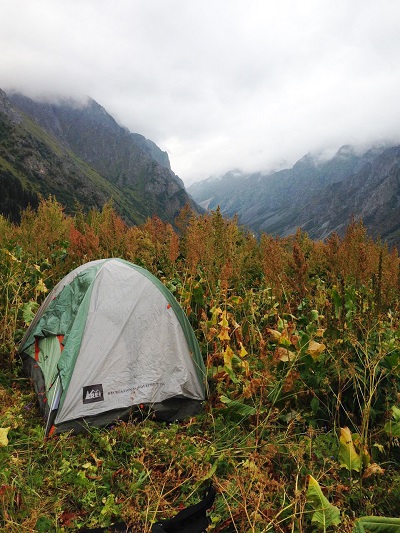
This post is to just share my own experience and how I tried to manage my own pain. What worked for me obviously may not be the best choice for somebody else.
So why couldn’t I just put my life abroad on hold and fix this?
Well I could have, but I didn’t do that for a few reasons:
1. I was technically “being paid to live abroad”…
Ok… I was being paid to complete a project abroad. I was extremely lucky and got a fancy schmancy grant to fund my studies. Since I’m a thrifty person, this grant and the money I earned while doing some side jobs in Norway also ended up paying for most of my studies in France and some incredible trips. If I had gone home I would have had to give up this scholarship or at least take a huge cut in the amount of funds I received.
I also was able to save a ton of money because being immobile meant I wasn’t out buying $13 beers in Oslo every weekend.
2. It was not guaranteed that I would receive better or faster medical treatment in the USA.
In that same sciatica post, you can read about the maze of things I did to help relieve my pain. I would have probably needed to go through all of those treatments in the USA as well. I also would probably be addicted to oxycodone right now if I had gone to the USA…
3. I was stuck in the rat race…
I felt that taking time away from school or giving up certain experiences would have been career suicide. In hindsight, that wasn’t true, but I had a lot of anxiety about it at the time. This refers specifically to the time during the academic year I would have missed.
Ok I have explained enough! I chose to stay abroad. I chose to travel with sciatica. Travel was and is my passion. That was how I was going to define myself and be more than just a person with sciatica.
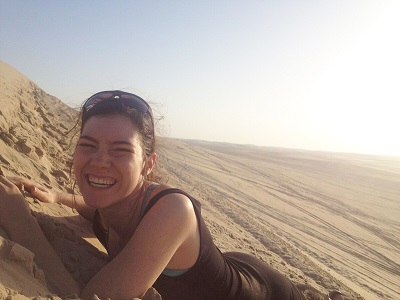
Where I went:
What I learned:
1. I put my pain and privilege into perspective.
In rural Tajikistan, the women in farming communities do the majority of the work. They cook and clean. They do the manual labor in the fields. If I were a woman in Tajikistan it would be no different, even if I did have a herniated disc.
My life is great, even with chronic pain. I can’t dismiss my pain, but I cannot deny my extreme privilege and luck. This is relative to other kinds of injuries but also just to other cultures. I am lucky to be a woman born in a country and culture that grants me so many rights, privileges, and opportunities.
I don’t want to smear Tajikistan, though. I loved my time there and I am thankful for the experiences I had with the kind and generous people there.
2. It’s important to find a passion to distract you from your pain.
My psychopath idea was to hitchhike around Central Asia, experience family life in Georgia, and visit monasteries in Armenia. I am not writing this post to advocate that you sciatica sufferers should pack your bags and go on a trip, I am writing it to advocate for the importance of finding a passion no matter how big or small to help distract you from your pain. I was so lucky to find travel as my passion, but anything will do.
3. My most painful years were not lost or wasted.
The most important part about finding a passion is that, when you look back to the worst moments of your chronic pain, you will have memories that are NOT pain related. I don’t think of the pain when I think of my travel with sciatica in Georgia. I think of the people and the food and magnificent music. My memories are of the inside of the yurts in Kyrgyzstan and the sounds yaks make at night when you have a tent pitched among them. They aren’t of the pain shooting down my leg.
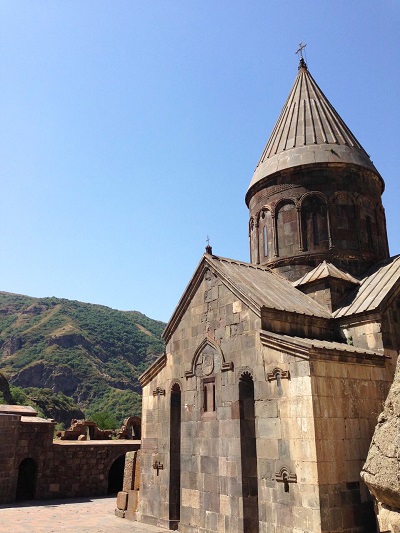
Sure I was in pain, but those trips and experiences define me so much more than my pain. My mother thinks I traveled so much to escape responsibility or some idea of a “Normal American Life”, but I did it to escape this pain.
Thanks to my decision to travel with sciatica, I still have some really positive and valuable memories from those painful years. When I had my surgery and had to reevaluate my identity as someone without severe sciatica, I did not go through another depression due to the notion that I had wasted years of my life.
Do you suffer from chronic pain? What are some of the things you did/do to not let your identity revolve around the pain?

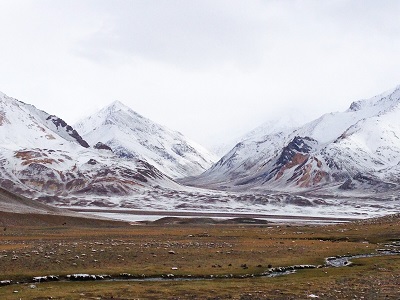


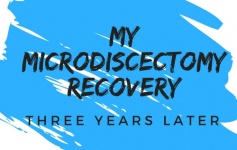
1 Comment